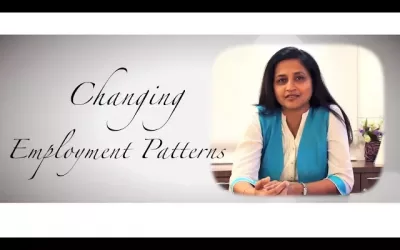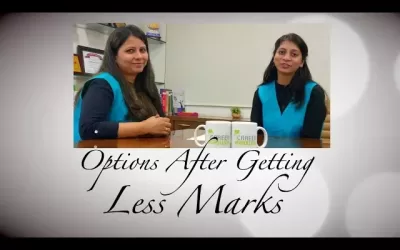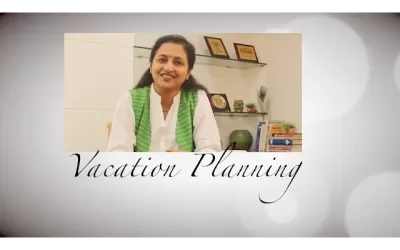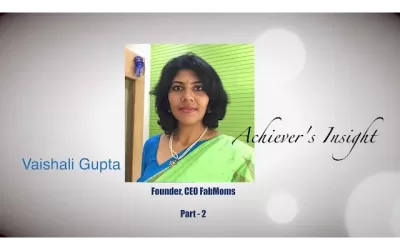 Navigating the Transition: Embracing a Change in Stream
Navigating the Transition: Embracing a Change in Stream
In this episode, Suchitra Surve talks about the most common concern for the students, which is changing the stream. Many sail through the 11th and 12th standard thinking that they have an option to change the stream after class 12th and due to the flexibility in the education system it is quite possible for the students to do so.
If the career goals cannot be met through that course or difficulty in understanding or not having the aptitude or not getting the desired college or is the trends are the reasons for the change then changing the stream would be a bad idea. Change the stream only if it is in line with one’s goal, dream, and aptitude or it is the only way to reach your career goal.
After the change, there might be a possibility that one is not able to understand the subjects. But one needs to put in sufficient hard work to understand the subjects as classes 11 and 12th give the foundation for the subjects in that stream. If one wants to pursue a career in science then it is recommended not to shift as the fields in science require an depth understanding of the subjects and research-oriented subjects will require a degree in science.
While applying for a job the company looks at various aspects like academics, skills, critical thinking, and decision-making ability. A bachelor’s degree is one way to prove one’s understanding of the basics of the subjects one is applying for. It will not affect you while applying for a job as the course has given you the foundation or the basics to start your career in that field.
Coping ability is personalized and differs from individual to individual. If one has decided to get into the field chosen then one needs to be ready to work hard. And put in more number of hours.
Frequently Asked Questions For Change in Stream
1. What does “change in stream” mean?
Changing your stream refers to shifting your academic or career focus from one field or subject area to another, often involving a switch in educational or professional pursuits.
2. Why do people consider changing their streams?
People consider changing streams to explore new interests, pursue different career opportunities, align with their passions, or address changing personal or professional goals.
3. How can I determine if changing my stream is the right decision for me?
Reflect on your interests, strengths, and long-term goals. Research the new stream’s requirements, job prospects, and potential challenges to make an informed decision.
4. Can I change my stream in education after a certain point?
In many cases, you can change your stream during specific transition periods, such as before entering college or university. However, some institutions might have limitations on changes after a certain stage.
5. What steps should I take to successfully change my stream?
Research your desired stream thoroughly, evaluate prerequisites, and consider any additional education or training needed. Update your resume or portfolio to reflect your new direction.
6. How do I manage the challenges that come with changing streams?
Stay open to learning, be patient with yourself, and seek guidance from mentors or professionals in your new field. Developing new skills and adapting to change is a gradual process.
7. How do I address the potential financial implications of changing streams?
Budget for any additional education or training required, and consider seeking financial advice to ensure a smooth transition without compromising your financial stability.
8. Can I leverage my previous experience when changing streams?
Absolutely. Transferable skills and experiences gained in your previous stream can enhance your abilities in the new field and make you a more well-rounded candidate.
9. What resources are available to help with changing streams?
Seek guidance from career counselors, mentors, online resources, networking events, and professional associations related to your new stream.
10. Is changing streams a common career move?
Yes, changing streams is becoming more common as individuals seek diverse career paths and pursue opportunities that align with their evolving interests and passions.
11. Can changing streams lead to greater job satisfaction?
Yes, changing streams to align with your true interests and strengths can lead to increased job satisfaction and a more fulfilling career.
12. Are there success stories of people who have successfully changed their streams?
Yes, there are numerous examples of individuals who have successfully changed streams and gone on to achieve great success in their new fields.
13. Can changing streams be done gradually?
Yes, changing streams can be a gradual process where you acquire new skills and experiences while still working in your current field, eventually making a smooth transition.
14. How can I overcome doubts or fears when considering changing streams?
Address doubts by conducting thorough research, seeking support from friends and family, and visualizing the positive outcomes of pursuing your new direction.
15. Can changing streams lead to personal growth and self-discovery?
Yes, changing streams often involves stepping out of your comfort zone, learning new things, and discovering aspects of yourself that you may not have explored before.
Changing your stream can be a transformative journey that opens up new opportunities, challenges, and personal growth. Embracing change and following your passions can lead to a more fulfilling and dynamic career path that aligns with your evolving aspirations.

 Navigating the Transition: Embracing a Change in Stream
Navigating the Transition: Embracing a Change in Stream




